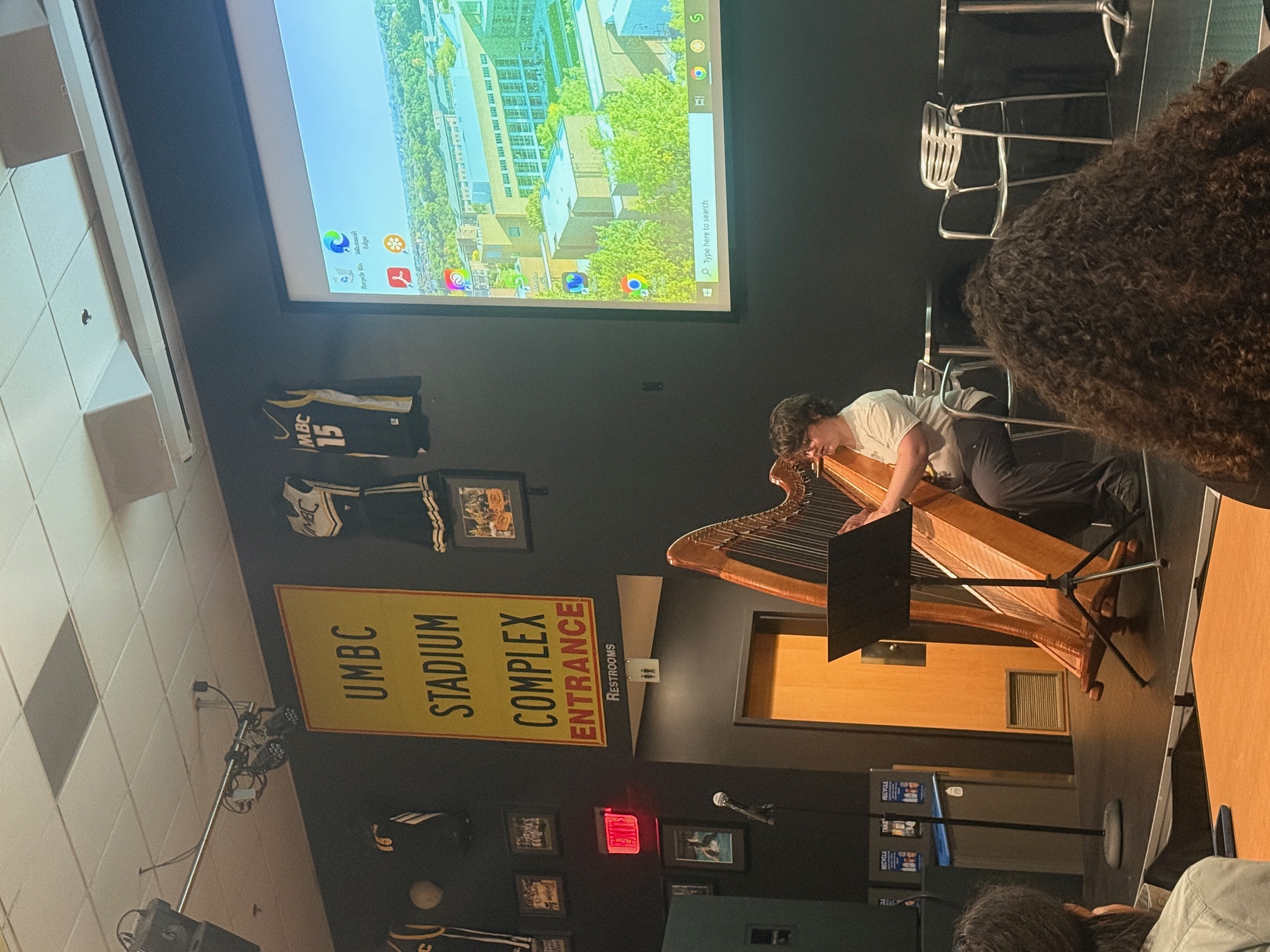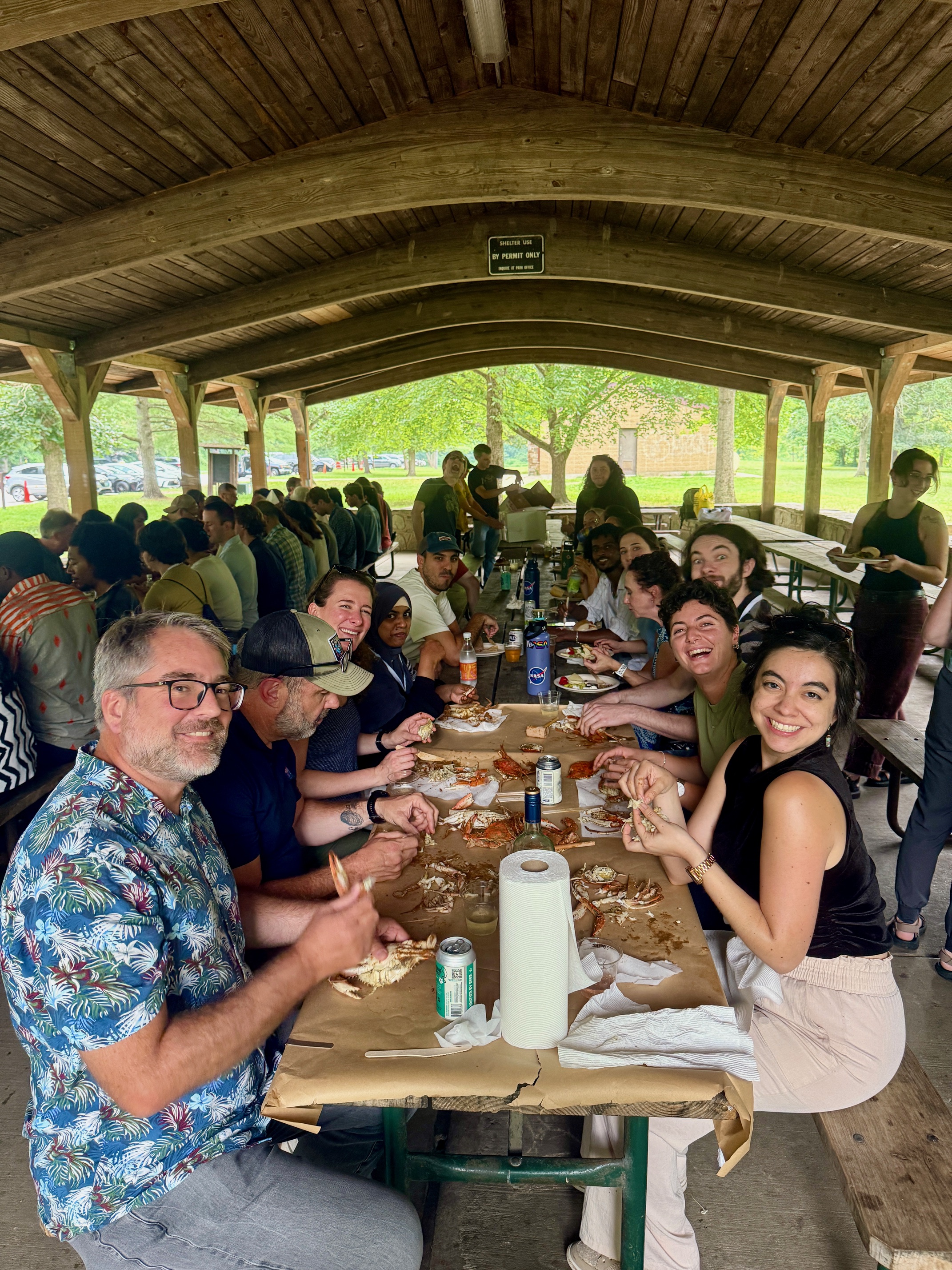Blog
PACE Hosts Second Hackweek at UMBC
Posted on Friday, August 29, 2025 at 13:15:00Since its launch in February 2024, the PACE mission has been collecting data about Earth's oceans, atmospheric aerosols, clouds, and even land. With so much data waiting to be used, the PACE Data Hackweek was born: a 5-day event at the University of Maryland Baltimore County (UMBC) filled with science lectures, coding tutorials, demos, and social events.
"Hackweeks are a cool way to engage with people with a range of interests and teach them how to use and interact with these data," said Jeremy Werdell, PACE project scientist at NASA's Goddard Space Flight Center in Greenbelt, Maryland and lead organizer of the Hackweek, on his thought process behind planning this event.
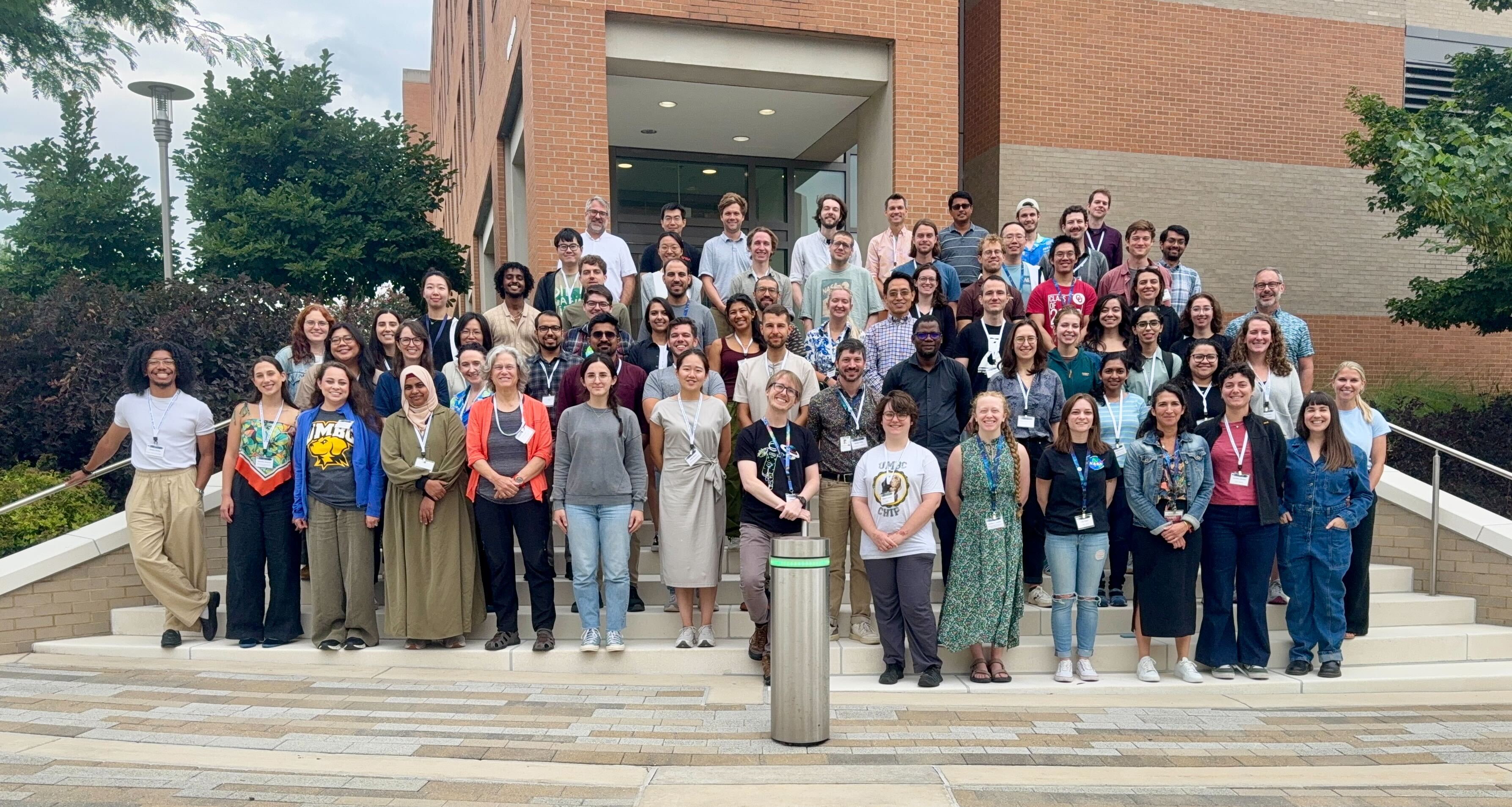 Group picture of 2025 PACE Data Hackweek participants and mentors. The organizers chose participants based on their previous research and what they could bring to the Hackweek, as well as their potential for advancing satellite oceanography. Courtesy: Anna Windle
Group picture of 2025 PACE Data Hackweek participants and mentors. The organizers chose participants based on their previous research and what they could bring to the Hackweek, as well as their potential for advancing satellite oceanography. Courtesy: Anna WindleParticipants got the chance to team up and work on a group project throughout the week. They started out by brainstorming research topics they were interested in, then mingled with each other and determined what exactly they'd like to dive deeper into. By the end of the Hackweek, they had a final product. The fourteen groups who presented their work studied a wide range of topics using PACE data. One group used the PACE Ocean Color Instrument data to assess natural disasters impacts on coastal environments, while several other groups looked at phytoplankton blooms to understand how ocean ecosystems change.
The importance of the Hackweek also extends beyond the 49 participants. One of the organizers, Carina Poulin, a scientific designer at the Ocean Ecology Lab at NASA Goddard, said she hoped the Hackweek brought increased interest and usage of the data and eventual research publications using PACE data. She also highlighted that the Hackweek's database of tutorials and code demos are publicly accessible afterwards.
These events are aimed to help get data into the hands of stakeholders who are essential in protecting food security, fisheries management, and water quality amongst other things.
"This is about creating resources to put the power of PACE data into the hands of the people who need it," Werdell said.
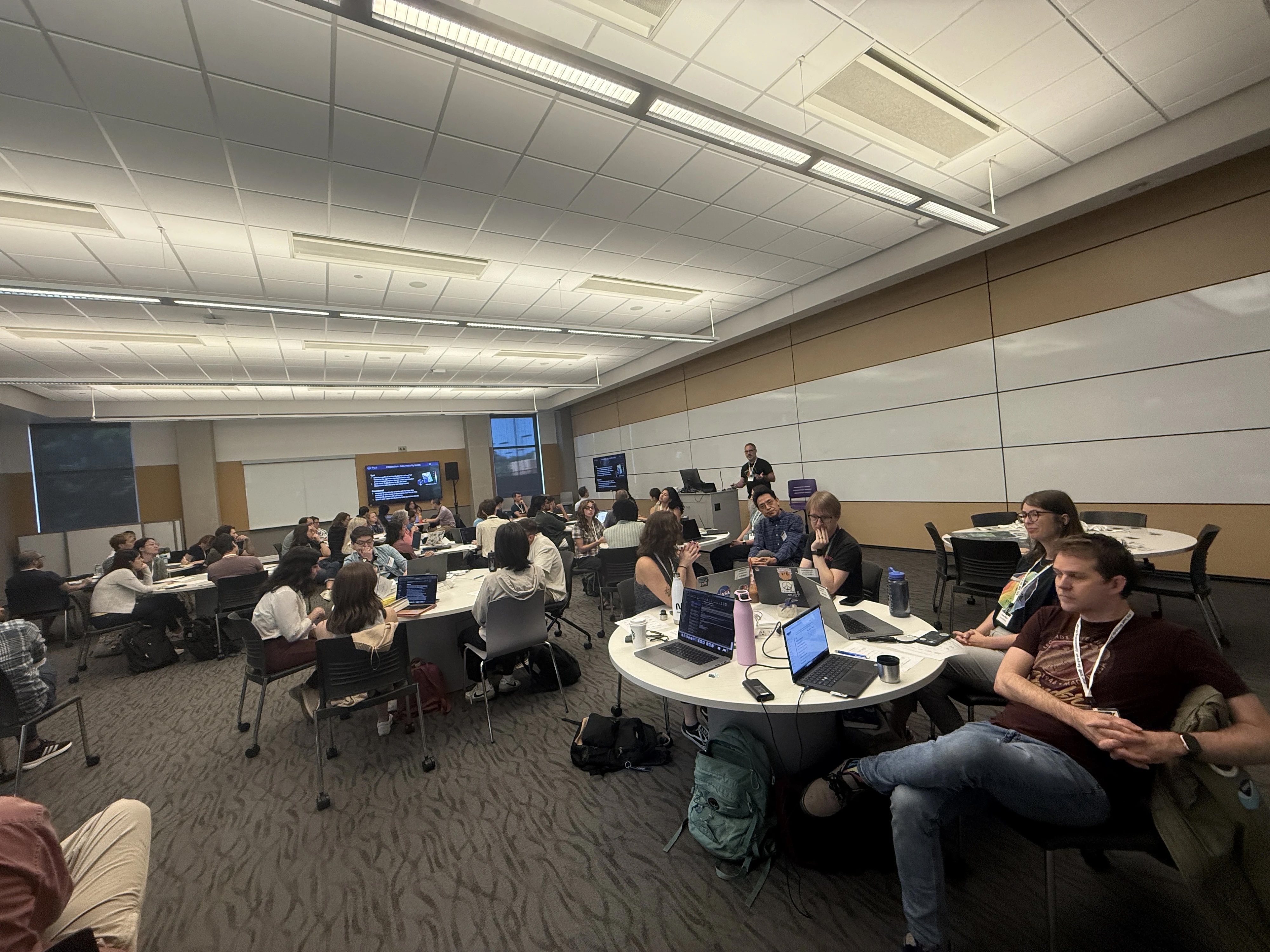 Hackweek participants in a classroom listening to a lecture by Jeremy Werdell. The CryoCloud platform by Hackweek co-lead organizer Ian Carroll provided access to cloud-hosted, scalable computing power without needing local infrastructure. Essentially, it streams PACE data like a streaming service and comes pre-configured with all the necessary Python libraries and tools. Since participants don't need to download data to their computer, it makes the entire Hackweek easier and much more efficient. Courtesy: Anna Windle
Hackweek participants in a classroom listening to a lecture by Jeremy Werdell. The CryoCloud platform by Hackweek co-lead organizer Ian Carroll provided access to cloud-hosted, scalable computing power without needing local infrastructure. Essentially, it streams PACE data like a streaming service and comes pre-configured with all the necessary Python libraries and tools. Since participants don't need to download data to their computer, it makes the entire Hackweek easier and much more efficient. Courtesy: Anna WindleAnna Windle, senior research scientist at Goddard's Ocean Ecology Lab and another lead organizer for the event, added that supporting participants with future career endeavors is an additional significant aspect.
"Networking is a huge thing, and we invite people from the Ocean Ecology Lab to come to events and talk to the participants," said Windle.
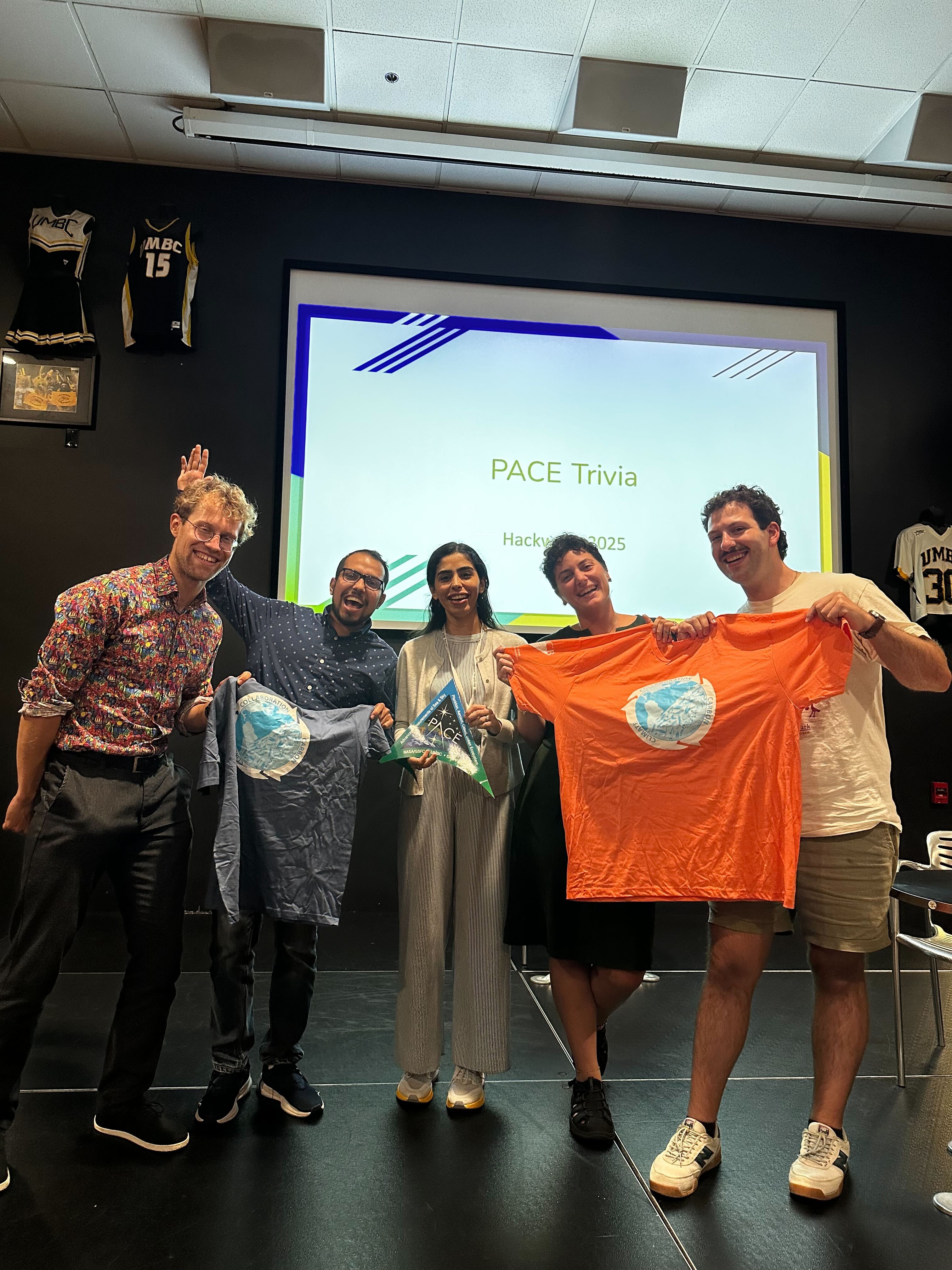 Hackweek participants play PACE themed trivia. Courtesy: Anna Windle
Hackweek participants play PACE themed trivia. Courtesy: Anna WindleAfter a successful inaugural Hackweek in 2024, the PACE team decided to do it again in 2025. With prior experience in coordinating logistics at UMBC, the bulk of the work for the organizers was in developing a more in-depth curriculum. Lectures needed to go beyond PACE tools and functions, now covering topics like how recently developed products could be used for observing seasonal global changes in plant pigments and answering science questions on atmospheric aerosols.
"The NASA PACE Hackweek unites researchers across disciplines," said Windle. "It empowers the next generation of Earth scientists to collaboratively unlock the full potential of satellite data to advance open, reproducible science that can lead to informed decision-making on climate, ocean health, and environmental policy."
This event was made possible with support from NASA, UMBC, and the Ocean Carbon & Biogeochemistry program.


